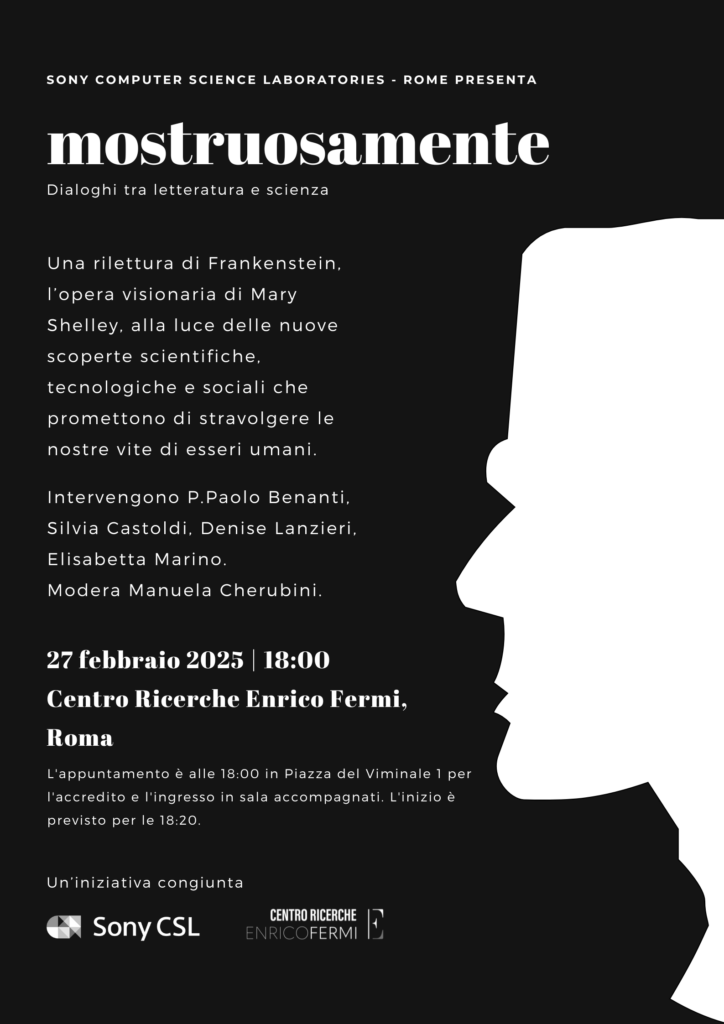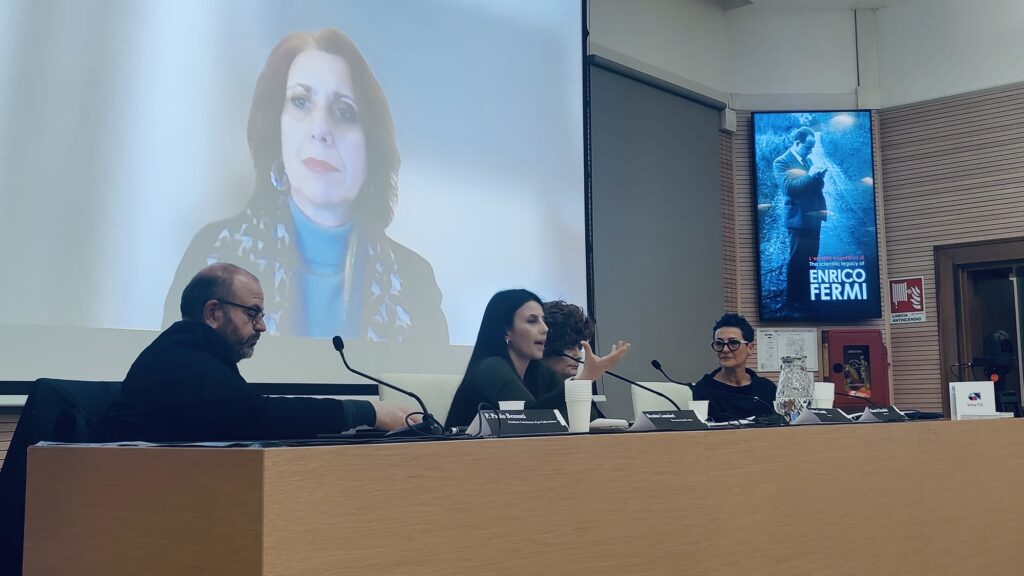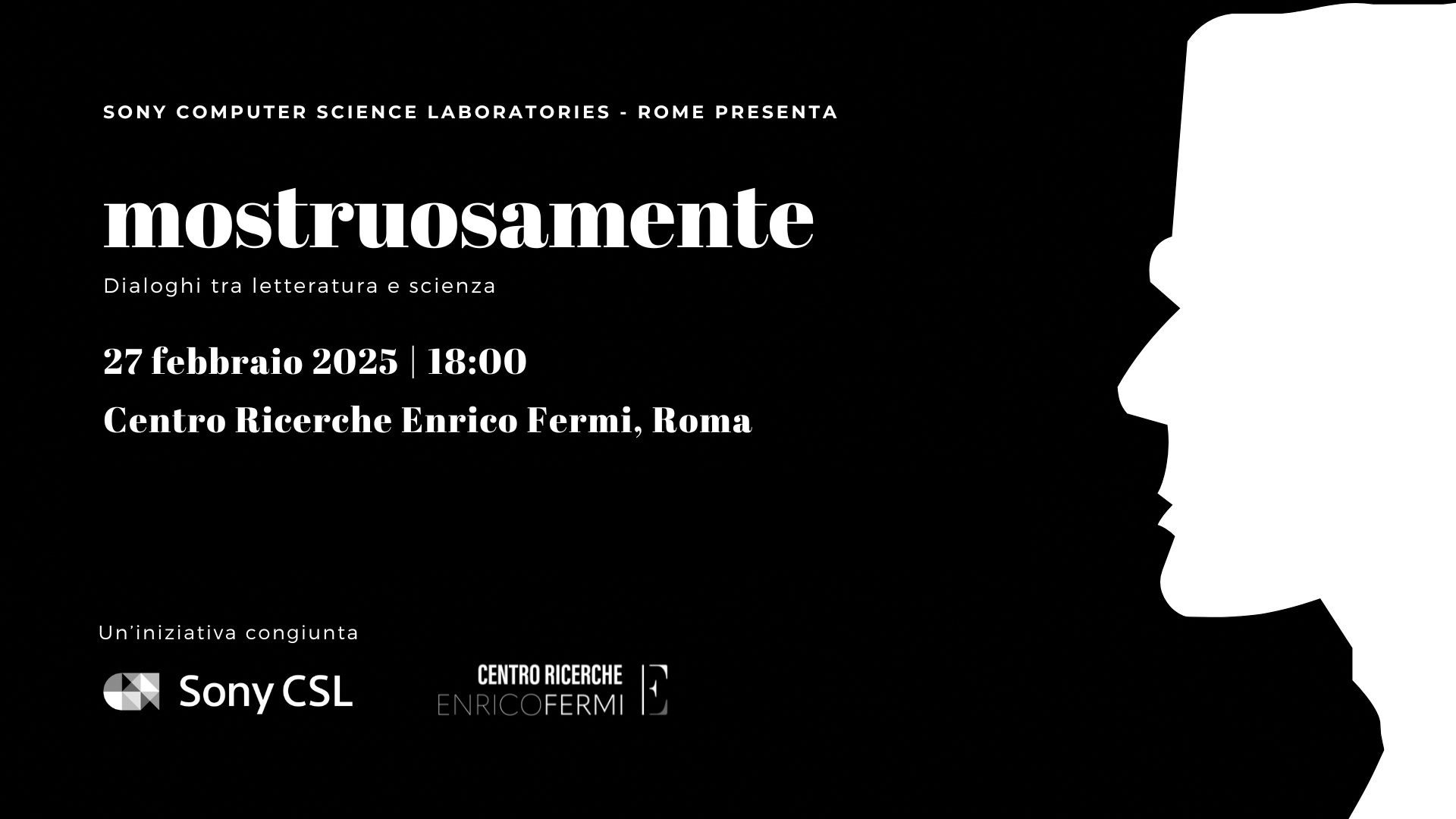Pushing ourselves beyond the boundaries of the known, exploring the unfathomable, activating in the dialogue between what is considered moral and what is not, generating virtuosity or monstrosity and wishing to control them or choosing to let them go. Marginalizing knowledge or those who hold it, marginalizing the object of it or those who, conversely, do not have access to it. And again, imagining, using the tools of the humans, the repercussions that some scientific discoveries could have in our lives as men and women.
Frankenstein was one of those works capable of founding a mythology by placing these issues at the center for generations of readers and scholars, and this event proposes a reinterpretation of the text in light of the new scientific, technological and social frontiers that promise to disrupt our lives as human beings and build a dialogue between multiple spheres, trying to imagine scenarios, exploiting the inspiration of Mary Shelley’s text and guided by scientific insights, both internal and external to Sony CSL’s research lines.

“mostruosamente” is thus a title and a suggestion. An Italia adverb that points us to a frightening, terrible, atrocious way of doing something, or we can glimpse in it the adjective of the noun mind that makes us ponder the possibility that the minds can become “monstrous,” able to create terrible things or that, in turn, have terrible minds. It can, finally, be interpreted again as “a way of.”
A way of taking the challenges, opportunities and knowledge offered by this slice of history in which we act and projecting them into a new “humanism” by making something “monstrously wonderful” out of it.

Speakers
- Denise Lanzieri
Researcher at Sony CSL – Rome. With a background in astrophysics, she began her career working on artificial intelligence, Deep Learning and Bayesian statistics applied to cosmology. Driven by a desire to explore new horizons beyond the cosmos, she joined the Augmented Creativity team at Sony CSL – Rome, where she devoted herself to the study of artificial intelligence and its relationship with human creativity. - Silvia Castoldi
Translator for major Italian publishing houses. She has translated novels by John Shirley, Robert Heinlein, Harry Harrison, Gore Vidal, Dawn Powell, Paula Fox, James Lloyd Carr, Anthony Powell, Daphne Rook, Saleem Haddad, Elizabeth Strout, Kevin Wilson, Paul Beatty, Howard Fast, Matt Haig, Fiona Mozley, Katharine Kilalea, Dan Chaon, Jennifer Clement, Mary Shelley, Robert Coover, Pitchaya Sudbanthad, James McBride Shehan Karunatilaka and other contemporary authors. - Elisabetta Marino
Full professor at the University of Rome Tor Vergata. Some fields of interest: English Romanticism (with particular reference to the figure of Mary Shelley and Percy Bysshe Shelley), travel literature, literature of the Indian diaspora, Italian literature of America. - Paolo Benanti
Chair of the AI Commission on Information, member of the Committee on Artificial Intelligence of the United Nations. He works on ethics, bioethics and ethics of technologies. In particular, his studies focus on innovation management: the Internet and the impact of the Digital Age, biotechnology for human enhancement and biosafety, neuroscience and neurotechnology. - Manuela Cherubini, Event Moderator. Director, actress and translator. Since 1994 she has been investigating the relationship between Art and Science by collaborating with CRM (Centro Ricerche Musicali). Since 2000, she has curated the organization and dramatization of the international conferences Music and Science and Art and Science, conceived by Michelangelo Lupone and Laura Bianchini, hosted by the Goethe Institut in Rome. From 2020 to 2022 he curated the Dialogues between Art and Science for the City of Rome together with Elisa Casseri and Giorgina Pi.



